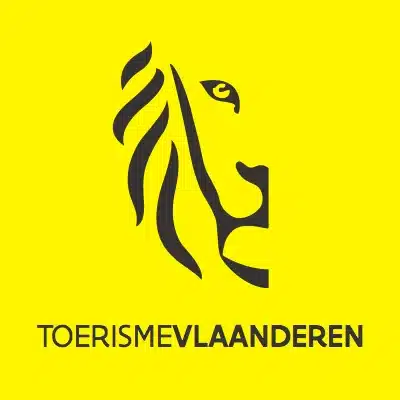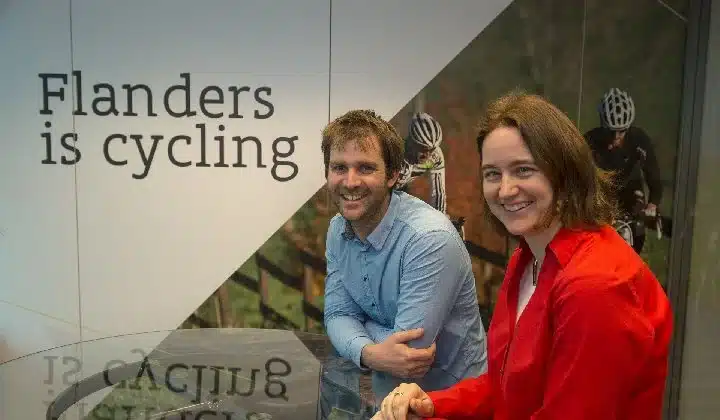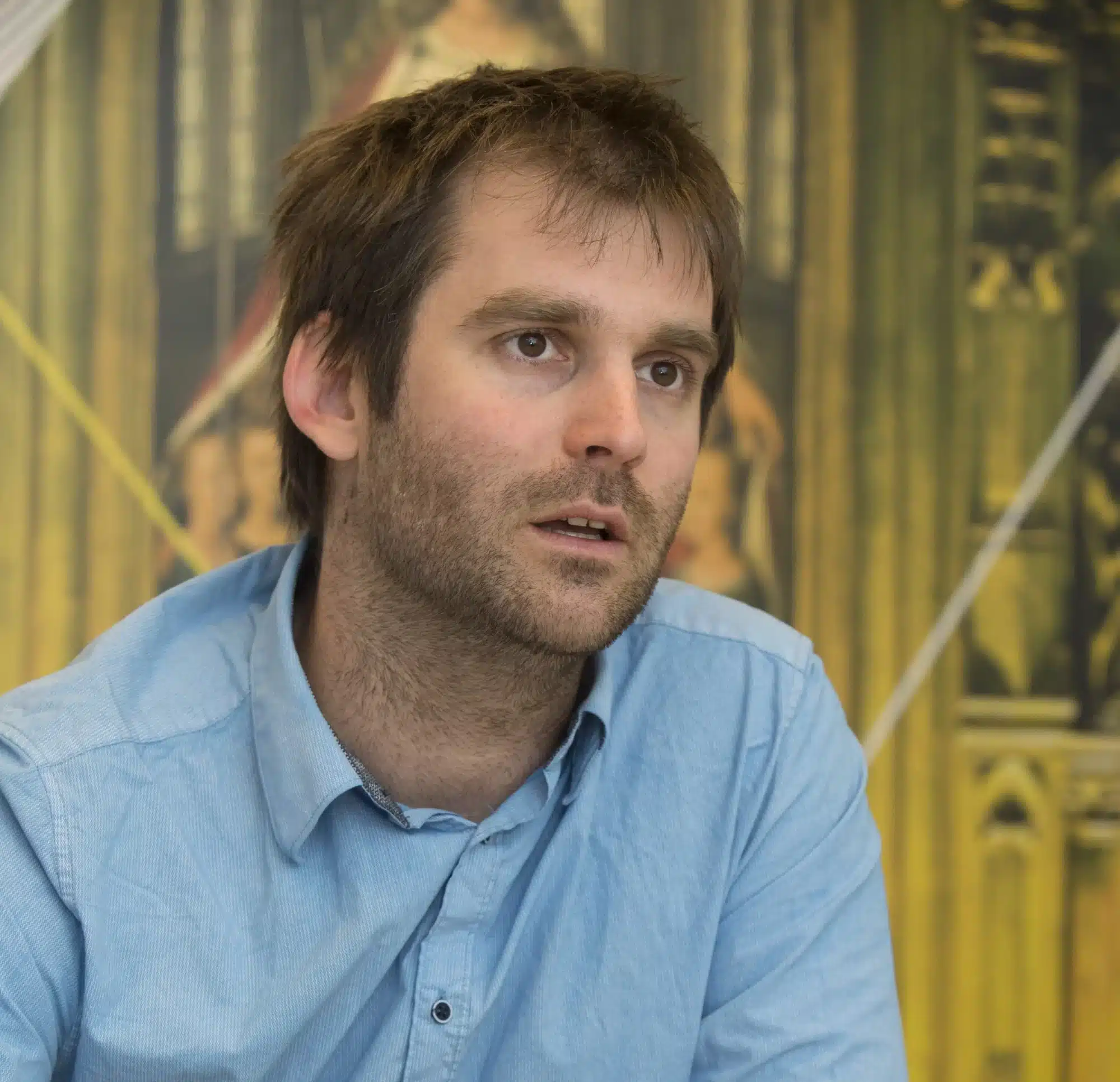Dynamic reporting thanks to Power BI
Hotel Barometer isn’t new to Tourism Flanders; hotel operators have been able to look up reports, for example to find out occupancy rates, since 2012. Annual reports often were 200 pages long PDF files, which was not really userfriendly for readers. Jos Pyck, Marketing Office Consultant for Tourism Flanders, understood there was plenty of room for improvement: ‘Those documents weren’t really very user-friendly, and the monthly reports weren’t much better; they’d been written by researchers for researchers, so were quite complicated. But they were still very much in demand because they were so useful, which is why we wanted to update them.’
Power BI was chosen because of its value and user-friendliness. Data is collected and entered in the software for all the hotels that give their consent. The result: compact custom reports. Anyone who wants to benchmark their hotel can now do so very quickly and easily. ‘Hotels that want to perform an analysis can apply various filters such as area, occupancy rate and price category. This provides them with relevant information straight away, so they save lots of time sifting through dozens of pages and still not getting very far,’ explains Pyck. ‘Of course, you can’t use it just to have a quick look at what your competitors are doing; you always need to compare a group of at least three hotels to see trends, which safeguards privacy. Nobody gets to see individual details, not even us.’

Everything in one place
To provide even more support, Tourism Flanders has also developed a portal for both hotel operators and guests. Hotel owners can create a profile which enables them to update and share their information with a third party, such as a publisher of travel guides. They can also look up reports and read valuable information about their sector. And the portal incorporates the Barometer now too. ‘Hotel operators can log in to this portal with a unique ID assigned by the cultural sector. We use embedded Power BI, so owners can see everything in a familiar environment straight away. We used to send a link out by email, but this was very laborious and it sometimes got lost or went wrong somewhere,’ explains Pyck.
Hotel operators are required to provide their data to the Federal Public Service (FPS) Economy, and all this data, which is used for the reports, is collated in the same place. The owners used to have to provide this information twice, including to Tourism Flanders as well, until the new application appeared online. But now it’s all entered automatically from the existing database. Jos Pyck: ‘When a hotel submits its information to the FPS, it now also has the option of sharing this data with us. With their consent, we simply get this information from our colleagues, which saves the hotel owners a lot of administrative work. It also means our data is always accurate and up to date.’

A tool for everyone
It’s not just hotel operators who benefit from this updated application and Power BI; Tourism Flanders, journalists and businesses are reaping the rewards too: ‘We can run more targeted campaigns now because we can see current market trends in the blink of an eye. We’ve already noticed that lots of our neighbours to the north visit Flanders in the winter, for example, so we can push our advertising in the Netherlands during that period. The more hotels share their data, the more targeted we can be,’ continues Jos Pyck.
‘Journalists and banks often ask us about occupancy rates, too. Lots of media agencies wanted to know what impact the terrorist attack on 22 March had on tourism, for example. Now they can look this information up for themselves using the Barometer, which saves us lots of valuable time. And businesses need this information too, to check a new venture’s chance of success, for example. They can even use it to substantiate their application for a bank loan.’
Move with the times
The new accommodation act has been in force since 1 April 2017, and has already resulted in several significant changes in the world of overnight accommodation. New concepts such as glamping and tree huts are included now too, along with online rentals such as Airbnb, and all these types of accommodation are required to provide their data to the FPS Economy. ‘We also want to make new data from guest rooms and camp sites available, so that we can help an even wider public, and not just hotels.’ explains Jos Pyck.

Kohera the logical choice
Jos Pyck explains why they chose Kohera: ‘We considered three different packages, including Microsoft Power BI, which ultimately came out on top because of its price and flexibility with licences. Power BI is also extremely user-friendly, and we wanted to be able to use the software ourselves once it was implemented. Fortunately, Frederik Aerts, Senior BI Consultant for Kohera, was the perfect person to guide us. He kept the project on track, within budget, and ensured all deadlines were met, explaining everything we needed to know to get started in just half a day.’
He came to work in the Tourism Flanders office to make sure we never got stuck, sometimes working with the management team, and on other days with the IT department. ‘Frederik was able to answer all our questions straight away. His presence on site saved us a lot of emails and phone calls, and we could arrange brainstorming sessions very quickly or ask for an explanation whenever things got too technical. Things that might be obvious to an IT expert certainly aren’t always easy for us.’ laughs Jos Pyck. ‘Kohera combines flawless expertise with clear, open lines of communication. We’re very happy with the collaboration and the way this project turned out.’
© 2023 Kohera
Crafted by
© 2022 Kohera
Crafted by
| Cookie | Duration | Description |
|---|---|---|
| ARRAffinity | session | ARRAffinity cookie is set by Azure app service, and allows the service to choose the right instance established by a user to deliver subsequent requests made by that user. |
| ARRAffinitySameSite | session | This cookie is set by Windows Azure cloud, and is used for load balancing to make sure the visitor page requests are routed to the same server in any browsing session. |
| cookielawinfo-checkbox-advertisement | 1 year | Set by the GDPR Cookie Consent plugin, this cookie records the user consent for the cookies in the "Advertisement" category. |
| cookielawinfo-checkbox-analytics | 11 months | This cookie is set by GDPR Cookie Consent plugin. The cookie is used to store the user consent for the cookies in the category "Analytics". |
| cookielawinfo-checkbox-functional | 11 months | The cookie is set by GDPR cookie consent to record the user consent for the cookies in the category "Functional". |
| cookielawinfo-checkbox-necessary | 11 months | This cookie is set by GDPR Cookie Consent plugin. The cookies is used to store the user consent for the cookies in the category "Necessary". |
| cookielawinfo-checkbox-others | 11 months | This cookie is set by GDPR Cookie Consent plugin. The cookie is used to store the user consent for the cookies in the category "Other. |
| cookielawinfo-checkbox-performance | 11 months | This cookie is set by GDPR Cookie Consent plugin. The cookie is used to store the user consent for the cookies in the category "Performance". |
| CookieLawInfoConsent | 1 year | CookieYes sets this cookie to record the default button state of the corresponding category and the status of CCPA. It works only in coordination with the primary cookie. |
| elementor | never | The website's WordPress theme uses this cookie. It allows the website owner to implement or change the website's content in real-time. |
| viewed_cookie_policy | 11 months | The cookie is set by the GDPR Cookie Consent plugin and is used to store whether or not user has consented to the use of cookies. It does not store any personal data. |
| Cookie | Duration | Description |
|---|---|---|
| __cf_bm | 30 minutes | Cloudflare set the cookie to support Cloudflare Bot Management. |
| pll_language | 1 year | Polylang sets this cookie to remember the language the user selects when returning to the website and get the language information when unavailable in another way. |
| Cookie | Duration | Description |
|---|---|---|
| _ga | 1 year 1 month 4 days | Google Analytics sets this cookie to calculate visitor, session and campaign data and track site usage for the site's analytics report. The cookie stores information anonymously and assigns a randomly generated number to recognise unique visitors. |
| _ga_* | 1 year 1 month 4 days | Google Analytics sets this cookie to store and count page views. |
| _gat_gtag_UA_* | 1 minute | Google Analytics sets this cookie to store a unique user ID. |
| _gid | 1 day | Google Analytics sets this cookie to store information on how visitors use a website while also creating an analytics report of the website's performance. Some of the collected data includes the number of visitors, their source, and the pages they visit anonymously. |
| ai_session | 30 minutes | This is a unique anonymous session identifier cookie set by Microsoft Application Insights software to gather statistical usage and telemetry data for apps built on the Azure cloud platform. |
| CONSENT | 2 years | YouTube sets this cookie via embedded YouTube videos and registers anonymous statistical data. |
| vuid | 1 year 1 month 4 days | Vimeo installs this cookie to collect tracking information by setting a unique ID to embed videos on the website. |
| Cookie | Duration | Description |
|---|---|---|
| ai_user | 1 year | Microsoft Azure sets this cookie as a unique user identifier cookie, enabling counting of the number of users accessing the application over time. |
| VISITOR_INFO1_LIVE | 5 months 27 days | YouTube sets this cookie to measure bandwidth, determining whether the user gets the new or old player interface. |
| YSC | session | Youtube sets this cookie to track the views of embedded videos on Youtube pages. |
| yt-remote-connected-devices | never | YouTube sets this cookie to store the user's video preferences using embedded YouTube videos. |
| yt-remote-device-id | never | YouTube sets this cookie to store the user's video preferences using embedded YouTube videos. |
| yt.innertube::nextId | never | YouTube sets this cookie to register a unique ID to store data on what videos from YouTube the user has seen. |
| yt.innertube::requests | never | YouTube sets this cookie to register a unique ID to store data on what videos from YouTube the user has seen. |
| Cookie | Duration | Description |
|---|---|---|
| WFESessionId | session | No description available. |